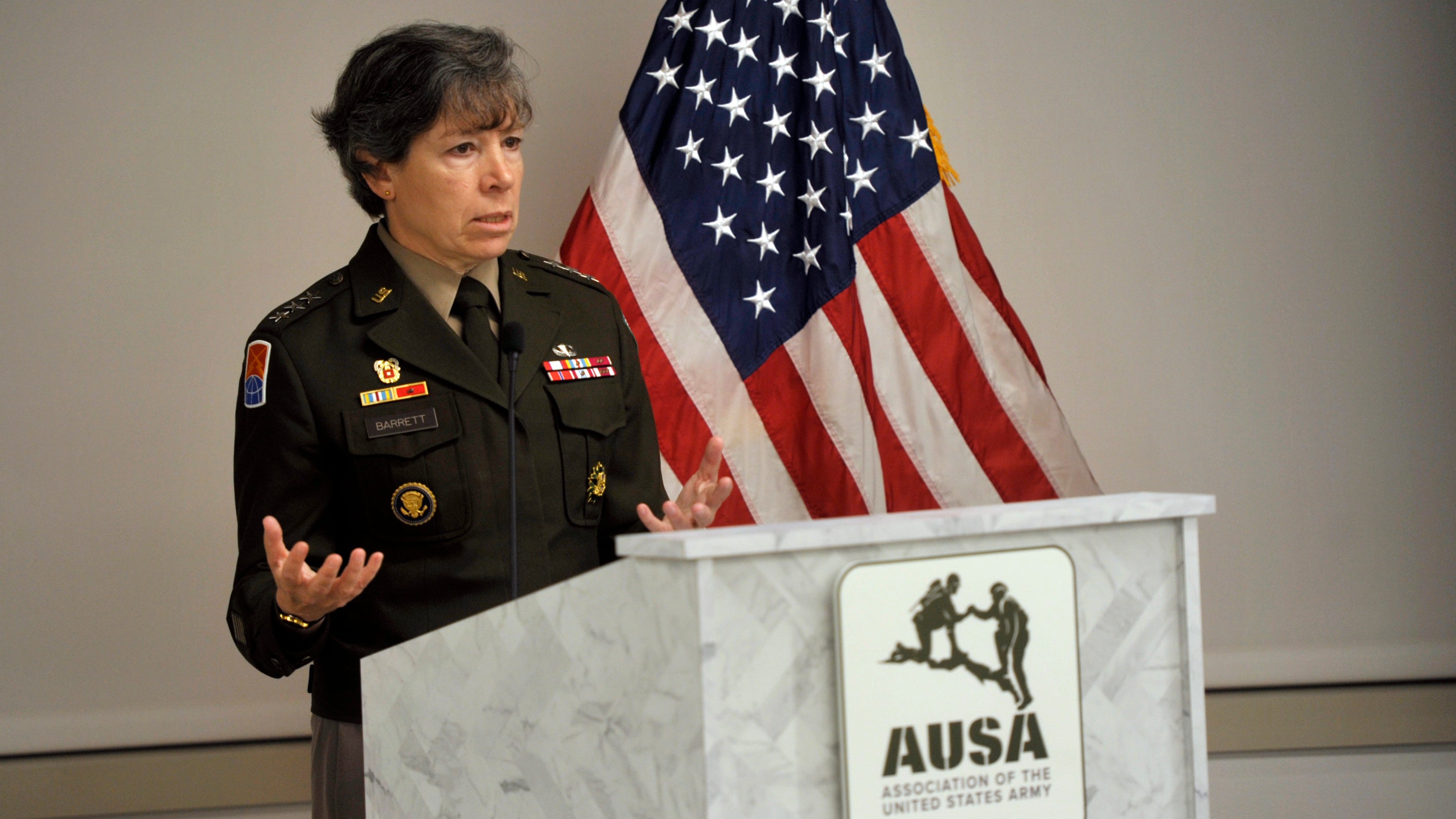Barrett: Army Must Adapt for ‘Persistent Conflict’
Barrett: Army Must Adapt for ‘Persistent Conflict’

The Army must be prepared to operate across the information spectrum to keep ahead of its adversaries, the commander of Army Cyber Command said.
In opening remarks July 2 at a Hot Topic on cyber and information advantage hosted by the Association of the U.S. Army, Lt. Gen. Maria Barrett said there is “persistent conflict” in the information dimension. This means the Army must “think through” now how it will apply military power across the spectrum of conflict.
“We might reserve this discussion to, ‘Oh, it’s just to conflict or it’s just to crisis,’ but, in fact, the competition space, this is where it’s happening,” Barret said. “If you think you’re going to deliver insights to a commander about the information dimension, and you’re not looking at it in the competition phase, whatever you are delivering in crisis, in conflict, probably will fall short.”
Barrett warned that across the threats that Army Cyber Command observes, the “barrier to entry keeps lowering” as malicious actors in the information space leverage technology and social media platforms to operate with near impunity.
The presence of a capable enemy that can use common tools to gain information advantage with “activities that happen across the spectrum of conflict below the threshold of war” makes it important for the Army to consider its role and how its capabilities are integrated at echelon, Barrett said.
While certain commands have capabilities such as expeditionary cyber teams, multidomain task forces, psychological operations and civil affairs, Barrett noted that consideration must be given to how those capabilities can be integrated within the joint force and with partners and allies to create a common understanding of the information environment.
Leaders also must consider the whole-of-government aspect in the information dimension, she said. As an example, when it comes to messaging from the State Department, “how can we complement what it is they would like to achieve in this space, in the competition sphere and then be prepared to provide options in crisis and conflict?”
Barrett pointed to the Army’s new theater information advantage detachments as an experimental capability that is being tested in the Indo-Pacific and Europe. These detachments are “enabling commanders to visualize and decide and, again, synchronize these effects that they could have in this dimension much better than they can today.”

